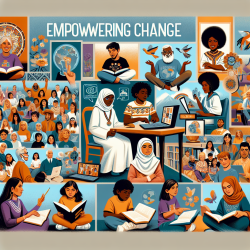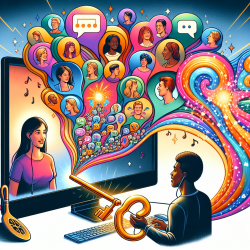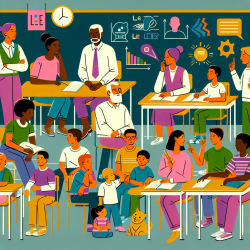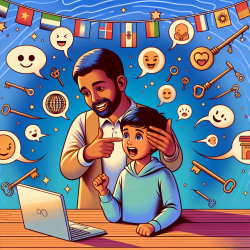Empowering Change: Embracing Diversity and Equity in Education
The COVID-19 pandemic has been a magnifying glass, revealing deep-seated inequities and injustices within societies worldwide. A poignant example is the ongoing genocide of Black and Indigenous peoples in Brazil, as highlighted in the research article, "The COVID-19 Pandemic and the Ongoing Genocide of Black and Indigenous Peoples in Brazil" by Raimundo C. Barreto Jr. This article underscores the exacerbation of racial and economic disparities during the pandemic, particularly under the leadership of Jair Bolsonaro.
As educators and practitioners, it is crucial to understand these dynamics and their implications for our work. The pandemic has amplified the need for a more inclusive and equitable educational system that recognizes and addresses the diverse needs of all students, particularly those from marginalized communities.
Understanding the Impact
The research highlights how the pandemic has disproportionately affected Black and Indigenous communities in Brazil, mirroring trends seen in other parts of the world. The failure of the Brazilian government to adequately address the pandemic has intensified the systemic racism and economic inequalities that these communities face. This situation is not unique to Brazil; similar patterns are evident globally, including in the United States.
Implementing Change in Education
For educators, this research serves as a call to action. Here are some strategies to consider:
- Promote Cultural Competency: Educators should strive to understand the cultural backgrounds and experiences of their students. This involves ongoing professional development and training in cultural competency.
- Advocate for Equity: Work towards creating equitable learning environments by advocating for policies that address disparities in resources and opportunities for marginalized students.
- Incorporate Diverse Perspectives: Curriculum should reflect diverse voices and perspectives, providing students with a more comprehensive understanding of the world.
- Engage with Families and Communities: Building strong partnerships with families and communities can enhance educational outcomes and support students' cultural identities.
Encouraging Further Research
While the article provides valuable insights, it also highlights the need for further research into the intersection of race, health, and education. Practitioners are encouraged to engage with ongoing research and contribute to the body of knowledge that can drive systemic change.
To read the original research paper, please follow this link: The COVID-19 Pandemic and the Ongoing Genocide of Black and Indigenous Peoples in Brazil.










